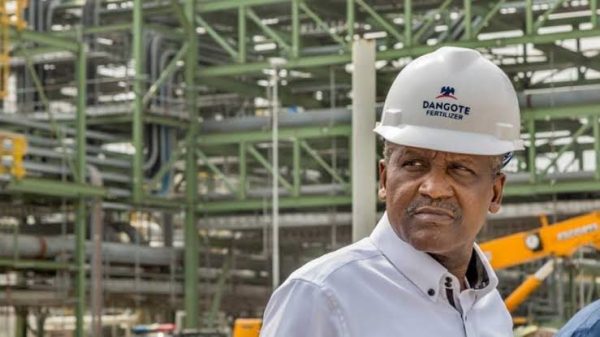Nigeria must enhance its crude oil production capacity and effectively manage supply to ensure adequate feedstock for domestic refineries, in order to transition from a net importer to a net exporter of petroleum products, according to Aliko Dangote, Chairman of Dangote Refinery and Petrochemicals Company Limited.
Speaking during his keynote address at a summit organized by the Crude Oil Refinery Owners Association of Nigeria (CORAN) in Lagos, Dangote expressed concern over Africa’s dependency on petroleum imports, despite the continent’s abundant crude oil resources. He highlighted that Africa imports around 3 million barrels of petroleum products daily, which cost approximately $17 billion in 2023.
Dangote emphasized that Nigeria, which produces over 3.4 million barrels of crude oil per day, should capitalize on this opportunity to become a net exporter of refined petroleum products. He argued that by refining locally, both crude oil and petroleum products would travel shorter distances, reducing logistics costs and eliminating the need for floating storage.
“Nigeria and Africa can become completely self-sufficient, keeping all the value within our shores. We have done it in cement, and we can certainly do it for petroleum products,” he said. He added that the Dangote Refinery already produces sufficient diesel and jet fuel to meet Nigeria’s demand, while production of Premium Motor Spirit (PMS) has commenced and will soon meet the country’s needs.
Represented by Engr. Mansur Ahmed, Group Executive Director of Dangote Industries Ltd, Dangote stressed the need for Nigeria to develop a refining capacity of 1.5 million barrels per day and prioritize domestic crude supply obligations to meet growing demand.
“It is unfortunate that while countries like Norway are putting oil proceeds into a future fund, in Africa, we are spending oil proceeds from the future,” Dangote noted. He urged the Nigerian government to incentivize investors and expand crude oil production capacity to support the demand from new refining facilities.
Highlighting global developments, particularly in Europe, that could disrupt traditional petroleum trade flows, Dangote stated that Nigeria is uniquely positioned to become a major player in the global oil industry. He called for collaboration among stakeholders to make Nigeria a refining hub, which would improve the country’s balance of trade and generate foreign currency.
The summit, themed “Making Nigeria a Net Exporter of Petroleum Products,” featured contributions from other industry leaders. Abdulrazaq Isa, Chairman of IPPG/Waltersmith Refinery & Petrochemicals Co. Ltd, called for government support to ensure domestic refiners have adequate crude supply and effective pricing to prevent smuggling.
Captain Emmanuel Iheanacho (rtd), Chairman of CORAN’s Board of Trustees, praised the Dangote Oil Refinery for producing Euro-V standard products, which protect citizens from harmful high-sulfur fuels. However, he emphasized the need for increased investment in crude production, noting that Nigeria loses about $83 billion annually by failing to meet its OPEC quota.
Huub Stokman, Chairman of the Major Energies Marketers Association of Nigeria (MEMAN), expressed optimism that Nigeria is on the verge of becoming Africa’s refining powerhouse, which will significantly boost the economy.
Senator Heineken Lopkobiri, Minister of State for Petroleum Resources (Oil), assured that the government would refine frameworks to enhance crude production and support domestic refineries. Dr. Doris Uzoka-Anite, Minister of Industry, Trade, and Investment, reiterated the government’s commitment to adding value to Nigeria’s mineral resources before export.
Two-panel sessions were held to explore Nigeria’s downstream petroleum refining sector, its potential impacts, and strategies for achieving self-sufficiency in petroleum products.


